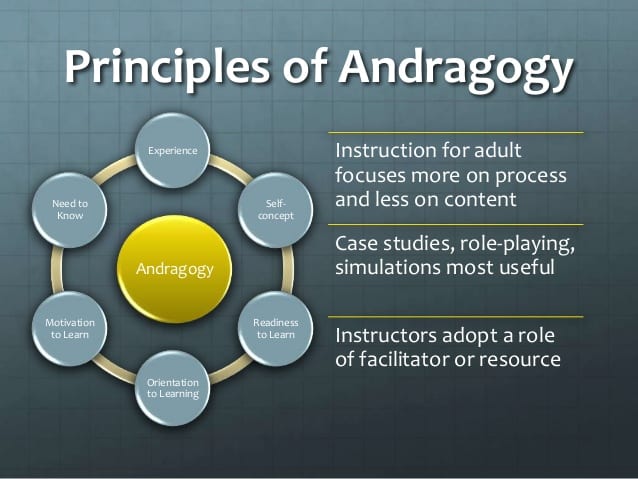For this week’s critical reflective journal, I’ve been considering the way in which my own experience of supporting student learning aligns with the ‘Learning Theories Table Summary’ explored in the main reading for this section of the module. Below I have explained briefly where I see synergies between the various learning theories and my own practice. I reflect on this week in the usual way at the end of this post.
What aspects of what is being said about learning and how students learn, resonate with your own views and experience?
As a learner
Constructivism – As a media student at UG level, a lot of what I learnt called for me to re-assess my own knowledge and understanding developed from many years of digesting various media products from radio, TV and film. This approached forced me to be critical of my own understanding.
SOLO Taxonomy – In a way, I relate to this in my own experiences as a learner. The focus of learning on my UG course developed in detail and quality over the course of the three years, so as to build up an understanding slowly and through ‘stages of increasing complexity’ as Biggs and Collis suggest.
Threshold Concepts – I like this idea. During my UG studies, the whole first year of study was designed around Threshold Concepts and as such was not formally included as part of the eventual degree calculations. The idea being that over the course of a year, all students reached a similar plateau of understanding and knowledge from which they could move on and specialise in the second and third years.
Andragogy – pre-conceptions played more of a part in my MA studies, I think I let myself down a little in this regard.

Practice based learning – Key in the media discipline that I studied at UG level and in my own experience of teaching Media. Students are taught in a way that reflects practice in the corporate world, so they respond to briefs in the way they would do when working in an agency, for example. This backs up their learning with real-life, practical experience.
Learning Styles – I would consider myself firmly in the ‘activists’ camp with a little of the ‘pragmatist’ and ‘theorist’. I need to improve my own reflection.
As a supporter of student learning
Constructivism – The idea of constructivism rings true, that you are never actually ‘writing on a blank slate’ and all knowledge builds upon what the learner already knows. They can then reflect and re-assess their prior understanding to achieve a more enlightened view.
Constructivism – Working in this way to transform the pre-existing knowledge of students leads to a greater understanding overall. E.g. A student may understand the basics of using a digital technology, but for many years they could have been doing things. Showing them a better, more effective approach calls for them to re-evaluate their prior understanding.
Surface Learning – I regularly see examples of ‘surface learning’. Within a session, students will pay particular attention and take lots of notes. Then, several days or weeks later, I am required to explain again the key points as they haven’t digested this information outside of the bounds of the session.
Threshold Concepts – We have a number of threshold concepts in place within my role as a learning technologist, although they are often unspoken. To attend certain training workshops, it is expected that you have an initial understanding at the basic level. Moreover, there are certain sessions that focus solely on these Threshold Concepts, such as an introduction to Blackboard (the VLE) which only seek to instil a very basic level of understanding from which students can progress.
Andragogy – This is very applicable, particularly when teaching academics how to use digital technologies!
Situation Learning – Developing a ‘community of practice’ is a great idea. The ‘Learning Recipes’ at Lincoln are a good example of this approach.
What aspects of what is being said are surprising, new or different from your own views and experience?
As a learner
SOLO Taxonomy – Interesting to consider how the SOLO Taxonomy might be used in assessment with those adopting a surface approach to learning, unable to reach the higher levels of the framework. I wonder if this was in place when I was a student.
The Kolb Learning Cycle – Hadn’t heard of this before, but it rings true with a lot of the learning I have been doing as a graduate, informed by the experiences I have in my work and personal life. I think adult learners bring a lot of ‘experience’ as baggage when they start to learn anything new.
‘It is important to remember that what the student does is actually more important in determining what is learned than what the teacher does’ – important idea!
As a supporter of student learning
Constructive alignment – Taking this approach to my teaching might be very beneficial as it constantly challenges the students. Knowing that my students need to understand certain key points, I can then design my session(s) around the idea of what I want the learners to be able to do with that knowledge.
Role play – I am aware of the possibilities for Role Play but haven’t ever explored if it would be suitable in my teaching sessions. Would it be a good way to reflect upon and reinforce learning? Asking an academic to demo a new concept they have just learned, would this work?
Learning requires opportunities for practice and exploration, space for thinking and reflection ‘in your head’ and for interaction with others and learning from and with peers and experts – I think I knew this, but this sums it up very subsequently and I think I need to do more of this in my own teaching practice.
Important points:
- Prior knowledge needs to be activated.
- Teachers and learners are both responsible for learning happening.
- When planning, specifying outcomes, teaching or assessing, lectures need to consider all appropriate domains and be aware of the level of operations being asked for.
- Teachers should avoid content overload; too much material will encourage a surface approach.
Brief Critical Reflections on Learning
I have been surprised by a number of the theories covered in the reading for this week, in particular, the ‘Kolb Learning Cycle’, which aligns with a lot of the learning I have been doing since graduation in a work environment. It is hard to learn as an adult without bringing a great deal of ‘baggage’ along with you. I can’t say I was particularly ‘surprised’ by the idea of role play, I’ve come across this a lot in my own practice, but the idea of applying this to a session full of academics is an interesting one. Would academics in a CPD session be confident learning more about a specific topic and then exploring what they’ve learnt by engaging in a role play teaching session that makes use of this new knowledge?
In my own practice, I have learnt that andragogy plays an important role as I usually teach an audience of academics and often there are also threshold concepts in place, even if they are unspoken, and these naturally define which students (in my case academics) attend which sessions. We usually have beginner and advanced training sessions and students are able to sign up to either workshop depending how familiar they feel with the topic. Constructivism plays a role here too, as one hopes that with each new session the students are building on what they have learnt before. All of these elements I would consider strengths and the reading this week has helped me to place these within the ‘Learning Theories Table’.
Overall, this week I have learnt a lot more about the variety of different approaches to learning. It is clear that each student will have their own approach to learning and it is important that as practitioners we are able to accommodate these different styles and activate the prior knowledge of our students. In the same way, we should avoid ‘content overload’ as too much content can encourage a surface approach to learning. Wherever possible, we should be looking to encourage a deeper approach to learning, one which can only be achieved when taking into account the different ‘learning theories’ that apply to both learners and supporters of student learning.
